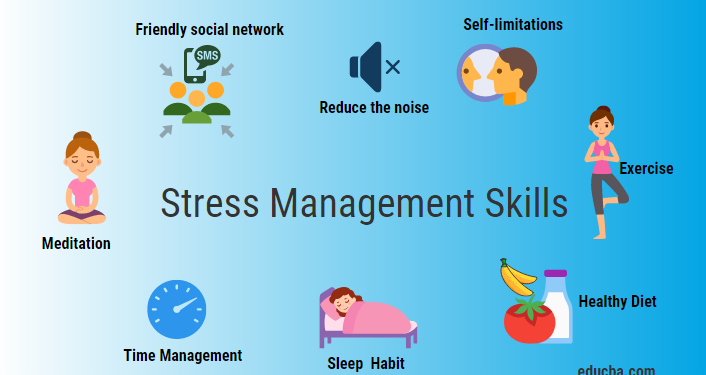
5 Ways to Cope with a Constant Stream of Bad News
In today’s world, it feels like every time we turn on the news or check our social media feeds, we’re met with another wave of bad news. From natural disasters and economic crises to political turmoil and personal tragedies, it’s no wonder many of us feel overwhelmed and anxious.
Imagine scrolling through your phone in the morning and being bombarded with distressing headlines before you’ve even had your coffee. It’s enough to make anyone want to crawl back into bed! But don’t worry, you’re not alone in feeling this way. Many of us struggle to stay positive amidst the constant stream of negativity. Luckily, there are practical steps we can take to manage this stress and reclaim our peace of mind. Let’s explore some friendly, research-backed strategies to help you navigate these challenging times and keep your mental health in check.
From natural disasters and humanitarian crises to economic instability and political turmoil, the constant stream of distressing news can take a toll on our mental health. Research shows that prolonged exposure to negative news can increase stress and anxiety, making it crucial to find effective ways to cope.
Overcoming the Stress of Bad News
Limit Your News Consumption
One of the most effective ways to manage stress from bad news is to limit your news consumption. Kelly Bombardiere, Vice President of Enterprise & 988 Crisis Services, advises unfollowing news outlets or muting their notifications to control when and how you receive news. Setting specific times each day or week to catch up on current events can help you stay informed without feeling overwhelmed. Studies suggest that constantly consuming negative news can lead to increased anxiety and a sense of helplessness. By managing your media diet, you can reduce these negative effects .
Seek Accurate and Positive News
In an age of misinformation, it’s important to validate the sources of your news to avoid spreading false information. Additionally, following positive news outlets can help balance the negativity. Platforms like the Good News Network and @goodnews_movement on Instagram focus on uplifting stories that can provide a much-needed break from the constant barrage of bad news. The World Health Organization recommended seeking positive news during the pandemic to help maintain mental health, advice that remains relevant in any crisis .
Focus on Self-Care
Engaging in activities that bring you joy can help alleviate the stress caused by negative news. This can be as simple as taking a bubble bath, listening to your favorite song, or practicing yoga. Research shows that activities that promote relaxation and joy can significantly reduce stress levels and improve overall well-being.
Practice Gratitude
Maintaining a sense of gratitude can help keep negative news in perspective. It can be challenging to stay positive when faced with constant bad news, but focusing on the good things in your life can provide a sense of balance. Consider getting involved with an organization that supports a cause you’re passionate about. Whether through donating time, money, or goods, helping others can foster a sense of purpose and positivity. Studies have shown that practicing gratitude can enhance well-being and reduce feelings of anxiety.
Embrace Simple Calming Rituals

Sometimes, simple rituals like making a cup of tea can have a calming effect. The act of putting the kettle on, a quintessentially British response to stress, can help lower levels of cortisol, the stress hormone. This small, mindful practice can provide a moment of peace amid the chaos of bad news .
Be Prepared, Not Paralyzed
While it’s important to be aware of potential dangers, dwelling on them can be counterproductive. Cheryl Crowe, Vice President of Behavioral Health at OSF HealthCare, suggests having an emergency response plan but advises against fixating on what could go wrong. Once you have a plan, continue with your daily activities with a healthy sense of caution rather than fear. Being prepared can reduce anxiety, but it’s crucial to not let worst-case scenarios dominate your thoughts.
Unplug from Social Media
Social media can amplify anxiety by constantly exposing us to distressing news. Crowe recommends unplugging from social media when it becomes overwhelming. You can choose to completely disconnect or limit your social media use to specific times each day. Studies indicate that taking breaks from social media can improve mental health by reducing exposure to negative content and allowing time for more positive activities.
Seek Professional Help
If you find it difficult to shake off the anxiety caused by bad news, it might be time to talk to a counselor. A mental health professional can help you process your feelings, develop coping strategies, and regain a sense of control. Prioritizing mental health is crucial for maintaining overall well-being, especially when dealing with a constant stream of negative news.
Conclusion
Living in an era of 24-hour news cycles means we are constantly exposed to bad news, which can significantly impact our mental health. By limiting news consumption, seeking positive stories, practicing self-care and gratitude, and embracing simple calming rituals, we can better manage the stress and anxiety caused by bad news. Being prepared but not paralyzed by potential dangers, unplugging from social media, and seeking professional help when needed are also essential strategies for maintaining mental well-being. Ultimately, it’s about finding a balance that allows you to stay informed without becoming overwhelmed.
Best luck to all of you.
